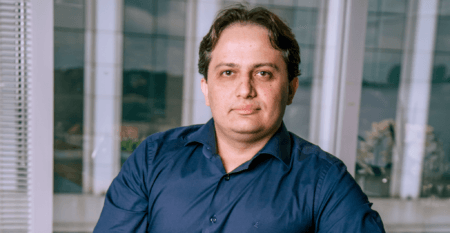Marc Andreessen talks about the pros and cons of net neutrality and the need for innovation |
http://pando.com/2014/01/14/the-free-and-open-internet-was-dealt-a-huge-blow-today
http://gigaom.com/2014/01/15/marc-andreessen-talks-about-the-pros-and-cons-of-net-neutrality-and-the-need-for-innovation/
Ever since he returned to Twitter in January, after not posting anything on the network for almost three years, legendary entrepreneur-turned-venture-
I urge @pmarca @fredwilson @johndoerr @paulg to stand up against this order that takes down Network Neutrality. Innovation ecosystem at risk—
Om Malik (@om) January 14, 2014
Although he joked about how Om should stick to his own causes and allow Andreessen to do the same, the former Netscape founder responded quickly that while unfettered innovation for startups is an important goal, the net neutrality debate “is a more complex topic than single flash-cut YES or NO in my view.” He added that there were too many similar simplifications of complex topics going around for his taste, including “NSA is evil: YES or NO.”
The bottom line, the Andreessen Horowitz founder said, is that he would like to see the network remain open to all but also wants to see massive investment in new technologies, and the challenge is how to make both of those things happen at the same time:
@om In ideal universe I want both net neutrality + fast growing investment in existing&new networks. Not obvious to me how to square circle.—
Marc Andreessen (@pmarca) January 15, 2014
The assumption behind his comments, Andreessen said, is that “the U.S. will need massive investment in existing and new networks for decades to come” and that the status quo will not be sufficient to support all the applications and services that society requires. The problem, he added, is that if carriers like Verizon are spending $20 billion or so on their networks every year, they need a certain return on that investment in order to continue doing so.
@om I want gigabits/second everywhere wired and wireless. Foundation of the future of our civilization. Will take mind-boggling $.—
Marc Andreessen (@pmarca) January 15, 2014
When someone suggested that encouraging carriers to spend would merely require “changing the method of profit, such that discriminating by content provider is no longer necessary,” Andreessen responded that the problem with that approach is deciding “who determines method of profit, customers or government regulators?” When the CEO of startup Seequ said that the FCC should simply redefine ISPs as “common carriers” like the phone companies, Andreesseen replied:
@iseequ @om Think we want to be careful to conclude they are common carriers; may not have a reason to invest/expand bandwidth.—
Marc Andreessen (@pmarca) January 15, 2014
When another commenter suggested that relying on government regulation to do the job isn’t such a stretch, Andreessen said it was for him because whenever government undertakes such a complex assignment it results in “perverse incentives + regulatory capture + lack of market discipline + unanticipated consequences.” He added while he admires the people working on the problem in D.C., he thinks that “even they would admit current regulatory regime ill-suited” and that the creation of new regulatory regimes is “fraught with peril.”
@hdiwan Patriot Act, Sarbanes-Oxley, Dodd-Frank, Obamacare… complexity layered on bad incentives layered on misunderstandings over & over.—
Marc Andreessen (@pmarca) January 15, 2014
As the discussion progressed, Andreessen started to get at the meat of why he believes massive network investment is required for the future: namely, that much faster speeds and connectivity are needed to support virtual presence and other technologies — and themassive amounts of data and analytics involved — that will allow us to live and work effectively without having to drive and fly everywhere all the time, which he called a “moral imperative.”
@om Only way for 10B people to live full modern lifestyles without destroying planet. Bandwidth everywhere, max software, max virtual.—
Marc Andreessen (@pmarca) January 15, 2014
On a less futuristic note, Fred Wilson of Union Square responded to Om’s question by writing a blog post in which he described the bleak future for internet-based startups if net neutrality isn’t preserved. As he put it, “Internet 3.0” would mean that “telcos will pick their preferred partners, subsidize the data costs for those apps, and make it much harder for new entrants to compete with the incumbents,” leading to potential responses from VCs like this one:
Entrepreneur: I plan to launch a photo sharing service where the faster your friends like the photos, the faster they disappear. It’s gamified social snapchat.
VC: Well since Facebook, Instagram, Twitter, and Snapchat have paid the telcos so the photos that are served up in their apps don’t use up any of the data plan, I worry that users won’t want to use any other photo sharing services… We love your idea and would have funded it right here in the meeting back in the good old days of the open internet, but we can’t do that anymore.


